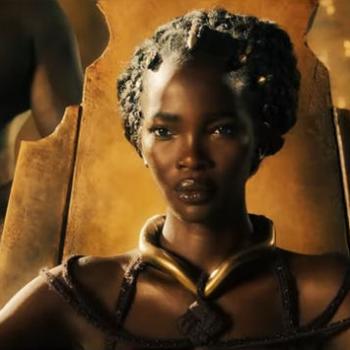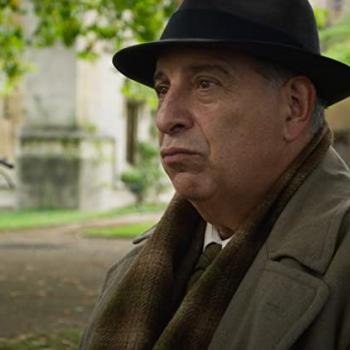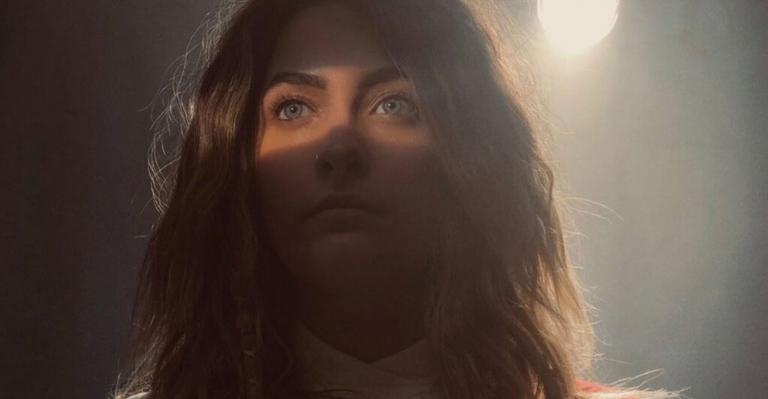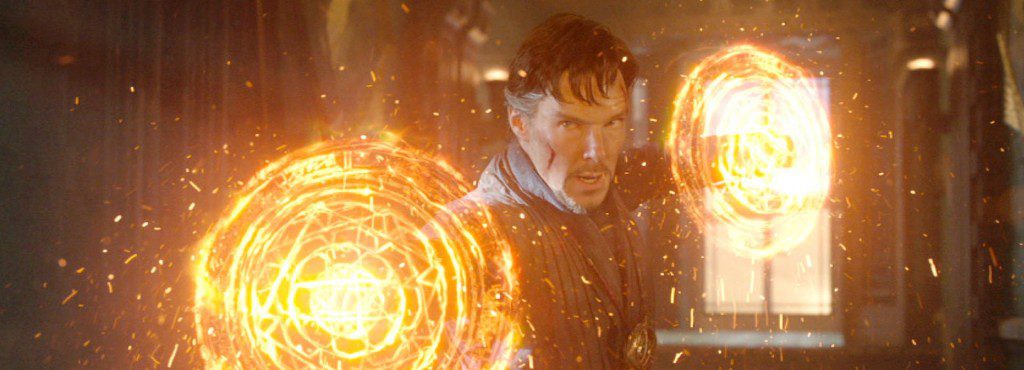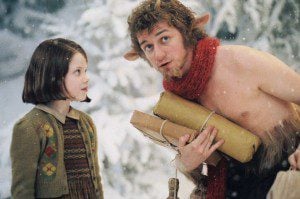 THE LION, the Witch and the Wardrobe is about four children who discover a magical country while staying in a professor’s house, far from their home, during World War II. They enter this country, called Narnia, through a secret portal in the back of a giant closet. And once they get there, they discover that their arrival is the fulfillment of an old prophecy.
THE LION, the Witch and the Wardrobe is about four children who discover a magical country while staying in a professor’s house, far from their home, during World War II. They enter this country, called Narnia, through a secret portal in the back of a giant closet. And once they get there, they discover that their arrival is the fulfillment of an old prophecy.
Narnia, the Pevensie children learn, has been shrouded in snow and ice for a full century; it is a land where it is always winter but never Christmas, thanks to an evil would-be queen called the White Witch. But it is prophesied that, one day, two boys and two girls will come to Narnia and take their place as the rightful kings and queens of that land.
Do the children ever raise any objections to this news? Does one of them ever stop to say, “Hold on a minute, what if we don’t want to fulfill somebody else’s prophecy?”
Not in C.S. Lewis’s original story, and not in most of the plays, cartoons, TV shows and radio dramas that have been based on it. With fairy tales, it is generally assumed that children want to be kings or queens, and the question faced by characters and readers alike is not whether they will want to achieve their destiny, but how they will go about achieving it.
Alas, fairy tales are not what they once were, and the newest dramatization of Lewis’s story — the first to be produced for the big screen — reflects the ambivalence of our age. It also reflects the perceived need for “realism” in film, a “realism” that is more about emphasizing human flaws and epic battles than about recognizing true strength of character.
In this version, directed by Andrew Adamson (Shrek, Shrek 2) from a script credited to him and three other writers, the children — Peter (William Moseley), Susan (Anna Popplewell), Edmund (Skandar Keynes) and Lucy (Georgie Henley) — often express their desire to return home to England. When Edmund is captured by the White Witch (Tilda Swinton), Peter insists he doesn’t care about the prophecy, he just wants to get his brother back.
The film underscores this connection to their home by beginning with a sequence depicting the air raids over London at the start of the war; in fact, the film basically begins inside a German bomber cockpit. As the Pevensies are herded into a shelter by their mother, Edmund runs back into the house for a photo of their father, who is away with the army. Peter chastises him: “You’re so selfish! … Why can’t you just do as you’re told?”
In this and other ways, the new film generates some sympathy for Edmund, and makes his eventual betrayal of his siblings seem less sinister, or less deliberate. And because the film makes such a big deal of Peter’s reluctance to lead the Narnians, it is not quite convincing when he and his siblings finally do take up arms against the Witch’s massive army.
Most of the other characters are revised in subtle but significant ways, too.
Throughout the film, Susan tries to be the “smart” one; she is reluctant to believe that Lucy has found a new world, or that animals can talk, or that Father Christmas (James Cosmo) is real, and — like many children who have read Lewis’s book — she points out that the prophetic poem quoted by Mr Beaver (Ray Winstone) doesn’t actually rhyme.
But when Susan and Peter consult with the Professor (Jim Broadbent), after Lucy first reports that she has found a new world, he tells them to stand by Lucy because she is “family” — a statement that affirms our post-modern preference for tribal loyalties more than Lewis’s belief in objective truth. In the book, the Professor gives Peter and Susan a version of Lewis’s famous liar-lunatic-or-Lord argument when he explains why Lucy is probably telling the truth; but in the film, he talks of “logic” only when he gently mocks Susan’s use of the word.
In addition, the film gives the Witch more stature while dialing back the stature of Narnia’s Christ-figure Aslan (a magnificent CGI lion voiced by Liam Neeson) just a notch or so. The Witch instantly knows that Edmund is a “son of Adam” without having to ask, while Aslan loses some of his warmth and ironic humour, especially when the Witch boldly approaches his camp and demands Edmund’s life. Here, it is Aslan, not the Witch, who loses his temper.
The Pevensies, too, steal some of Aslan’s thunder. In the book, Father Christmas declares, “Aslan is on the move. The Witch’s magic is weakening.” But in the film, he tells the children, “The hope brought by Your Majesties is starting to weaken the Witch’s power.” Similarly, Mr Beaver tells the children that Aslan’s arrival in Narnia is one of several things that have happened “because of you,” almost as though it was the children who prompted Aslan into action.
Christian fans may also be disappointed that the film makes no reference to Aslan’s father, the Emperor-Beyond-the-Sea, or to the Deeper Magic that existed before the dawn of time. Instead, as one of the film’s producers put it, at a press junket attended by my friend and colleague Steven D. Greydanus, Aslan simply “figures out” the Deep Magic in a way that the Witch did not. In these and other ways, the film tones down Aslan’s omnipotence and authority.
Granted, it is no crime if a movie makes changes to the story on which it was based — and not all the changes here are for the worse. But Christians have a special attachment to the Narnia stories; Aslan not only represents Christ, he is Christ in Narnian form, and much has been made of the book’s apologetic and evangelistic potential and, therefore, of the film’s as well. But it is precisely on those points that the film is weakest.
Some scenes do work very well. Henley is absolutely adorable as Lucy, and the scenes in which she befriends the faun Mr Tumnus (James McAvoy) are simply enchanting. The children are genuinely believable as siblings (and as the eldest of two boys in a four-child family myself, I know whereof I speak). And Swinton is the first actress in any filmed adaptation I’ve seen to understand that the White Witch’s evil must, at times, be subtle, crafty and seductive.
The film’s special-effects team also does a fine job of bringing Lewis’s imagination to vivid life, though the results are a little iffy in places. The Witch’s castle is like a bouquet of icicles turned upside down, and Aslan’s sacrifice is, appropriately, a dark and foreboding nightmare. The griffins — creatures half-eagle, half-lion — are nicely rendered, though the Fox (Rupert Everett) is more of a cartoon, and the Beavers and the Wolves fall somewhere in between. (In an interesting twist on the usual Hollywood casting choices, the heroes are all British, while the bad-guy wolves are voiced by Americans.)
But even on the purely technical or cinematic level, the film has its problems. Some of the new dialogue is strictly boilerplate, and Harry Gregson-Williams’s otherwise impressive symphonic score occasionally gives way to an out-of-place pop-vocal arrangement that jars at the very moment when it is supposed to enchant. The battle scenes also come across like a pale imitation of the equivalent scenes from Peter Jackson’s Lord of the Rings trilogy.
Lewis once said the important thing about a myth is not how it is told, but the “pattern of events” it communicates; after that, he wrote, “you can throw the means of communication away”. By that standard, Adamson’s film is a success; it covers all the basic plot points — including, yes, Aslan’s death and resurrection. But the nuances surrounding these events have been changed a fair bit, and the script loses much of the flavour of Lewis’s books.
This could have been a fantasy film for the ages, but, as it is, once you have beheld the pattern of events, you may find that the film itself is not so hard to throw away.
Internet Movie Database | Movie Review Query Engine
USA: PG | BC: PG | ON: PG
— A version of this review was first published at CanadianChristianity.com.



